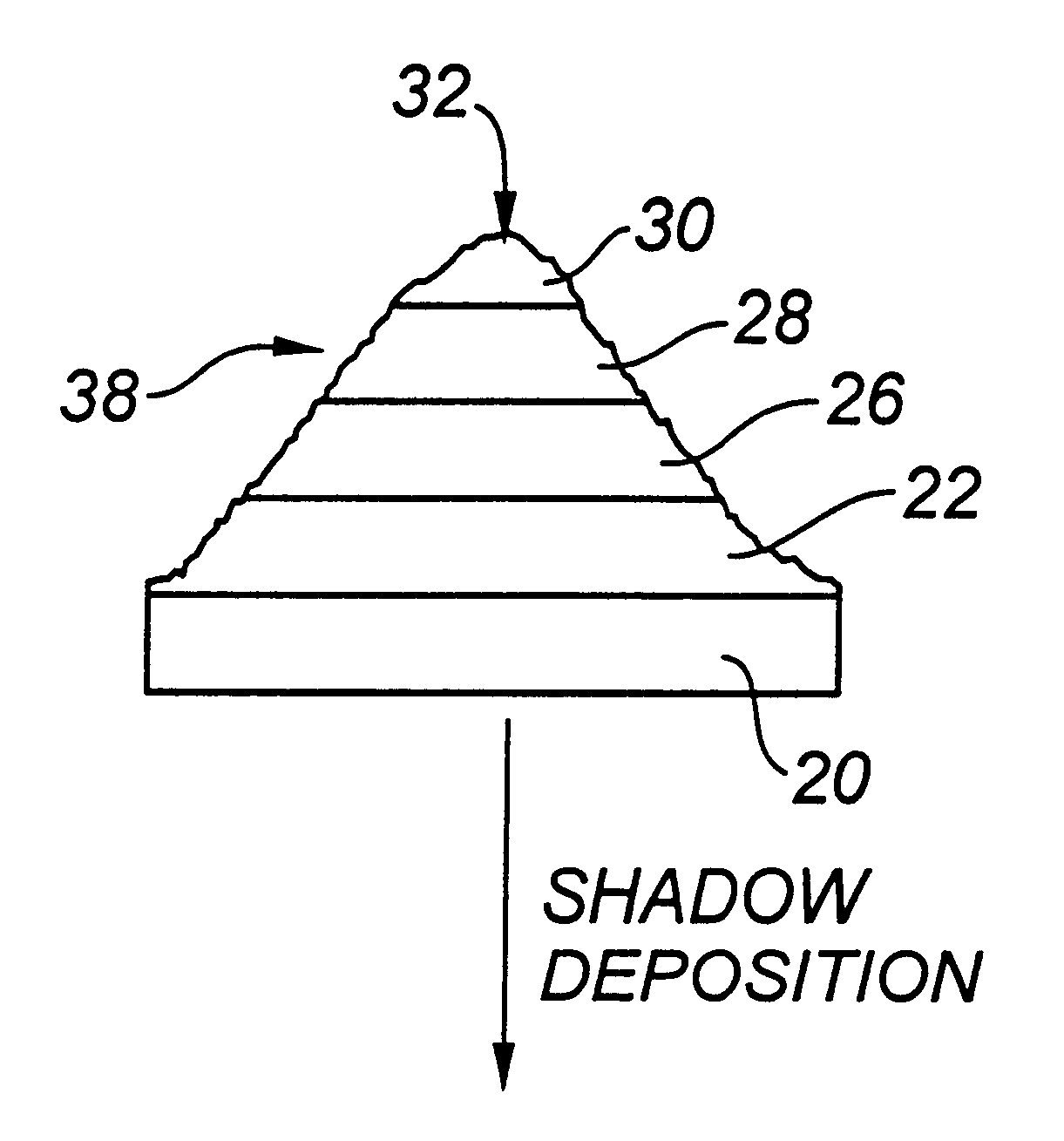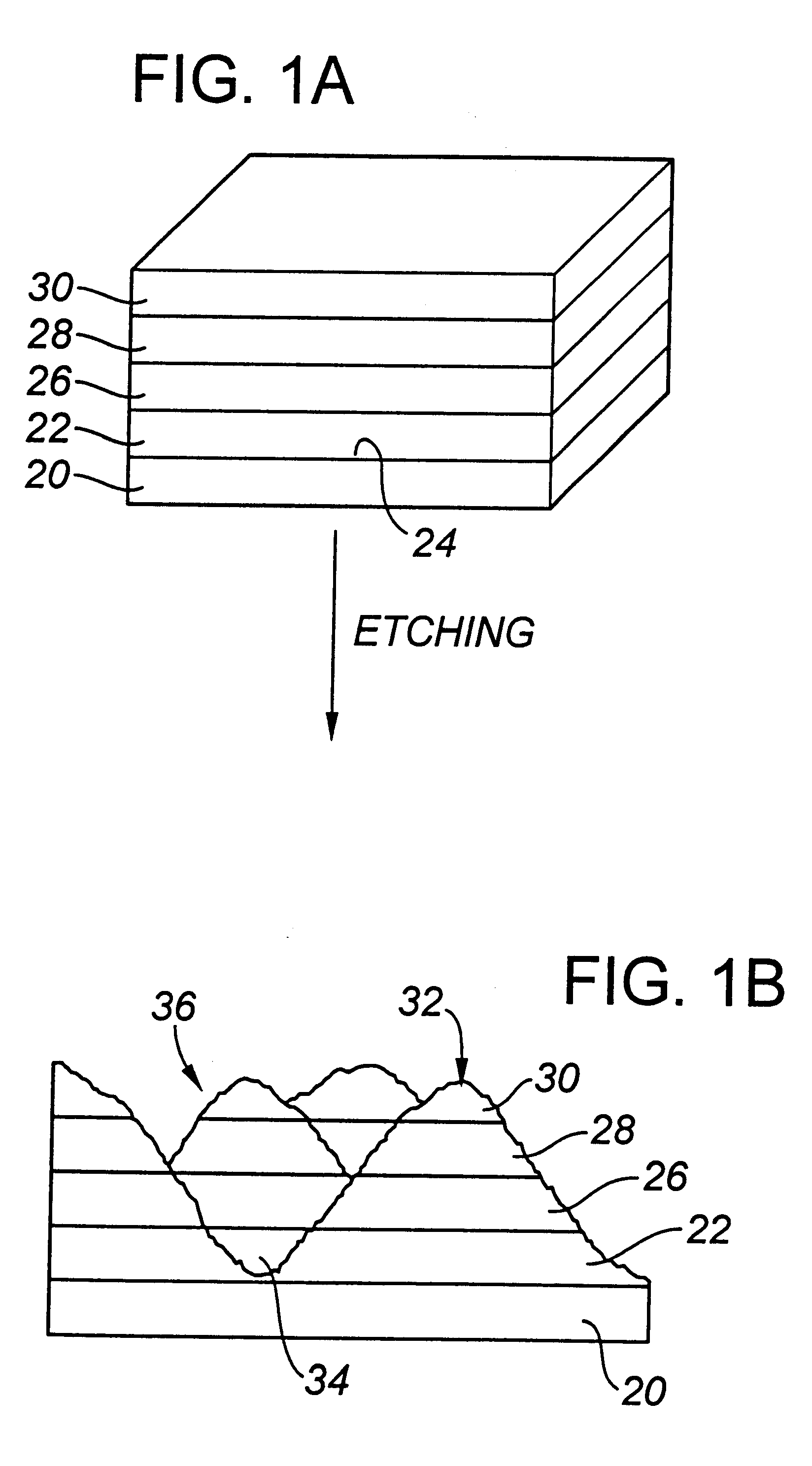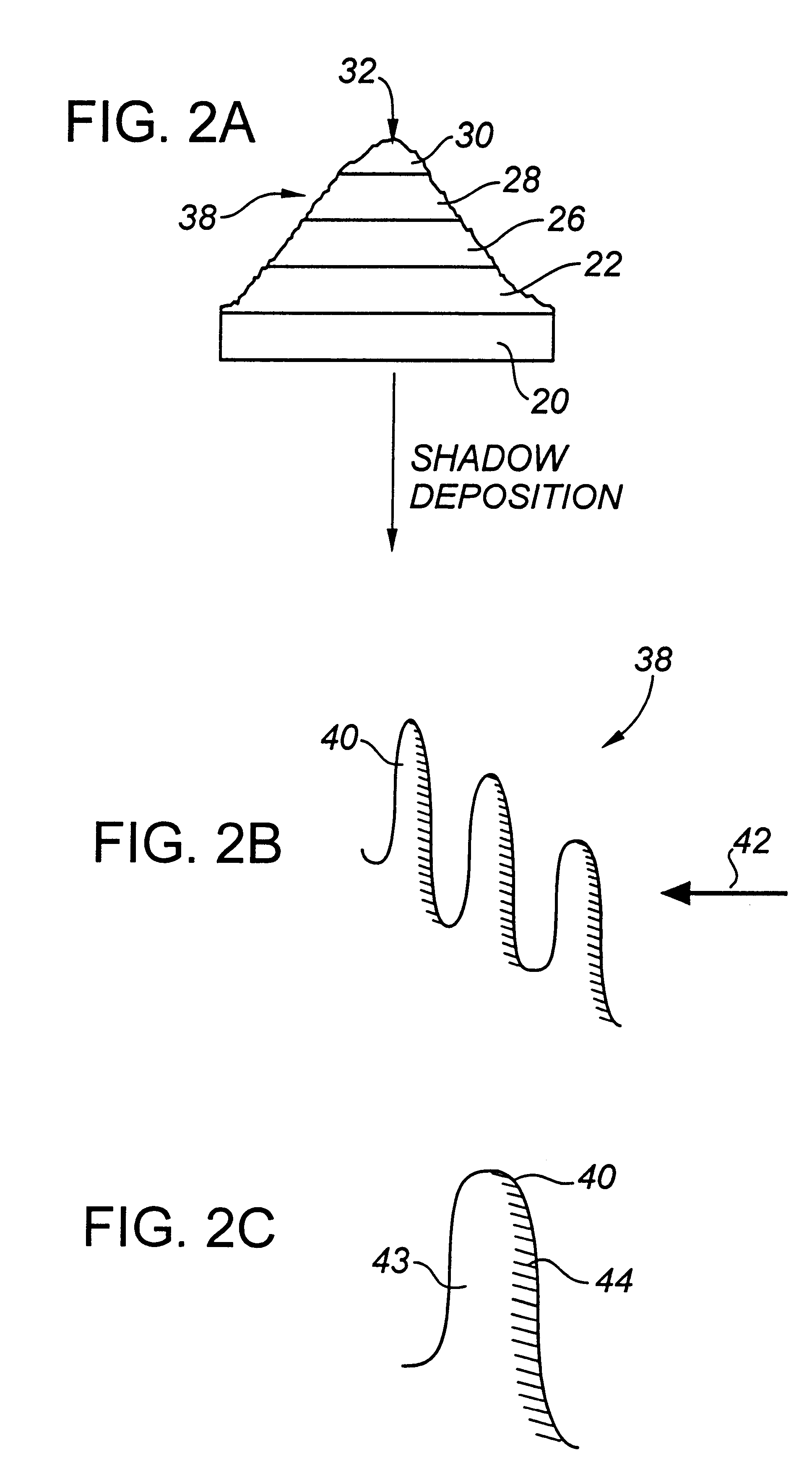Process for production of actively sterile surfaces
a technology of active sterility and surface, which is applied in the direction of ion implantation coating, liquid/solution decomposition chemical coating, chemical vapor deposition coating, etc., can solve the problems of not being suitable for most surgical dressings, rapid decline in the presence of metal ions, and ineffective macroscopic galvanic action, etc., to achieve high antimicrobial efficacy, high reactivity of substances, and high reactivity
- Summary
- Abstract
- Description
- Claims
- Application Information
AI Technical Summary
Benefits of technology
Problems solved by technology
Method used
Image
Examples
example i
Petri plates of agar mixture were prepared according the manufacturer's (Gibco) instructions, using 1.5% Eagles medium, agar and serum being added to the medium at 50.degree. C. Agar plates were allowed to surface dry for 24 hours. The desired organism, e.g., S. aureus ATTC No. 25923 in TSB (Trypticase Soy Broth Difco) was incubated at 37.degree. C. for 16 hours then 1 ml transferred to 10 ml TSB for 16 hours; 0.1 ml aliquots of culture dispensed per petri plate and spread to provide bacterial lawn.
The material or disc to be tested was placed on surface of agar, the plates were incubated at 37.degree. C. for 24 hours and the zone of inhibition measured and corrected zones of inhibition calculated.
The data shown in Tables I and II were obtained as in Example I. Table III experiment with various organisms was similarly conducted.
The data of Table IV were obtained as in Example II.
example ii
Sterile synthetic urine was prepared as in Nickel et al. (April 1985) Eur. J. Clin. Microbiol. 4(2):213-218. Discs (coated surfaces or controls) were immersed in synthetic urine at 37.degree. C. for various time periods.
Discs were removed from the urine, washed with sterile deionized water and placed on bacterial lawns prepared as in Example I.
Antimicrobial activity was determined as in Example I.
TABLE II
TABLE III
TABLE III
Table I demonstrates the antimicrobial activity of various film surfaces of types comparable to those previously described. A smooth surface of silver alone, as in silver foil, shows no antimicrobial activity. Slight activity is seen when silver wire mesh is tested. The third system of Table I, which would be expected to produce macro-galvanic action at the limited interfaces between the silver and platinum layers, shows no antimicrobial activity. The last three examples of Table I involve smooth metal layers within the range of thicknesses described in European Pa...
PUM
| Property | Measurement | Unit |
|---|---|---|
| thicknesses | aaaaa | aaaaa |
| thicknesses | aaaaa | aaaaa |
| thickness | aaaaa | aaaaa |
Abstract
Description
Claims
Application Information
 Login to View More
Login to View More - R&D
- Intellectual Property
- Life Sciences
- Materials
- Tech Scout
- Unparalleled Data Quality
- Higher Quality Content
- 60% Fewer Hallucinations
Browse by: Latest US Patents, China's latest patents, Technical Efficacy Thesaurus, Application Domain, Technology Topic, Popular Technical Reports.
© 2025 PatSnap. All rights reserved.Legal|Privacy policy|Modern Slavery Act Transparency Statement|Sitemap|About US| Contact US: help@patsnap.com



